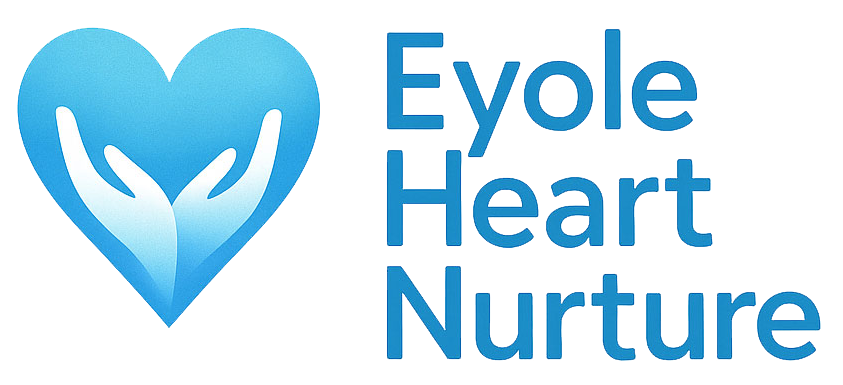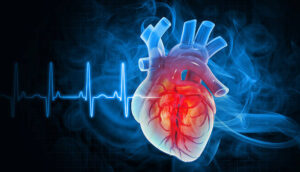It was a humid afternoon in the bustling streets of Yaounde when Amina, a 42-year-old mother of three, felt a strange tightness in her chest. For months, she dismissed it as fatigue from her spice market stall, working from dawn till dusk. “I thought it was just the heat or lack of rest,” Amina recalls, her voice trembling as she spoke to a local health worker. When the pain intensified, her neighbor urged a clinic visit, revealing early-stage hypertension—a silent precursor to cardiovascular disease. At EyoleHeartNurture.com, we believe knowledge restores health, reflecting the wisdom that “wisdom will enter your heart, and knowledge will be pleasant to your soul” (Proverbs 2:10).
A Journey of Resilience
Amina’s days were marked by exhaustion. Her story reflects a pressing issue in Cameroon, where heart health awareness remains critically low. The World Health Organization (WHO) reports that cardiovascular diseases (CVDs) cause 17.9 million deaths globally each year, with sub-Saharan Africa facing a growing burden. In Cameroon, limited healthcare access, poor diet, and lack of exercise fuel this crisis, especially for women like Amina, balancing family and work without a health focus.
Lack of Heart Health Awareness in Cameroon
Dr. Emmanuel Nchinda, a cardiologist at Yaoundé General Hospital, observes, “Many Cameroonians, especially in rural areas, miss heart disease symptoms until it’s severe. There’s a lack of education about risks like high blood pressure and diabetes.” This echoes the American Heart Association’s insight that “cultural stigmas and limited healthcare access worsen heart disease risks”. Amina’s journey shifted when she joined a Douala health program. “They taught us about vegetables and daily walks,” she says. Her blood pressure improved within months. Yet, only 30% of Cameroonians check their blood pressure regularly, per the Ministry of Public Health.
Breaking the Cycle: A Call to Action
Imagine a Cameroon where every market vendor, teacher, and farmer recognizes heart attack signs—chest pain, shortness of breath, or weakness. This is possible with education. The American Heart Association notes, “Early detection and lifestyle changes can prevent up to 80% of premature heart disease and stroke cases”. For Cameroon, this means workshops, mobile clinics, and social media outreach. Amina now leads a local health group. “I don’t want others to lack the knowledge I did,” she says, highlighting the need for resources to combat this silent crisis.
Practical Steps to Overcome the Lack of Heart Health Awareness
- Diet: Swap fried plantains for boiled options and add leafy greens like spinach, rich in potassium, as Amina did.
- Exercise: Aim for 30 minutes of walking daily to boost heart health.
- Screening: Visit a clinic for free blood pressure checks, available through NGOs like the Cameroon Heart Foundation.
- Community Support: Join groups to share knowledge and motivation. Dr. Nchinda adds, “Small changes matter, but we need government and community backing to expand these efforts.” With 60% of Cameroonians in rural areas, mobile health units could transform access, as the WHO suggests.
Start Your Journey Today
Begin your path to heart-healthy practice. Take the free heart test today. Let’s build communities where heart disease is no longer silent—where every heartbeat counts.
Frequently Asked Questions
- What is the meaning of lack?
Lack means the absence or shortage of something essential, like awareness. - What is a better word for lack?
A better word for lack could be “deficiency” or “scarcity,” as in the deficiency of healthcare access in rural Cameroon. - How can I use lack?
Use “lack” in a sentence like, “The lack of education about CVDs hinders prevention in Cameroon.” - What is the difference between lack and lacking?
“Lack” is a noun (e.g., lack of awareness), while “lacking” is an adjective (e.g., a community lacking resources). - What is the meaning of lack in the Oxford Dictionary?
The Oxford Dictionary defines “lack” as the state of being without or not having enough. - What does it mean when someone lacks?
When someone lacks, it means they miss a quality or resource, like Amina lacking initial health knowledge. - What is the opposite of lack?
The opposite of lack is “abundance” or “sufficiency,” reflecting a community with ample health resources. - What do you call lack?
Lack can be called a “shortage,” “deficit,” or “deprivation,” depending on context. - What does “lack” mean in this passage?
In this article, “lack” refers to the absence of awareness, resources, or education about heart health in Cameroon. - What does lack mean in the Bible?
In the Bible, “lack” often signifies spiritual or material want, as in Proverbs 28:27, “Those who give to the poor will lack nothing” (NIV).





